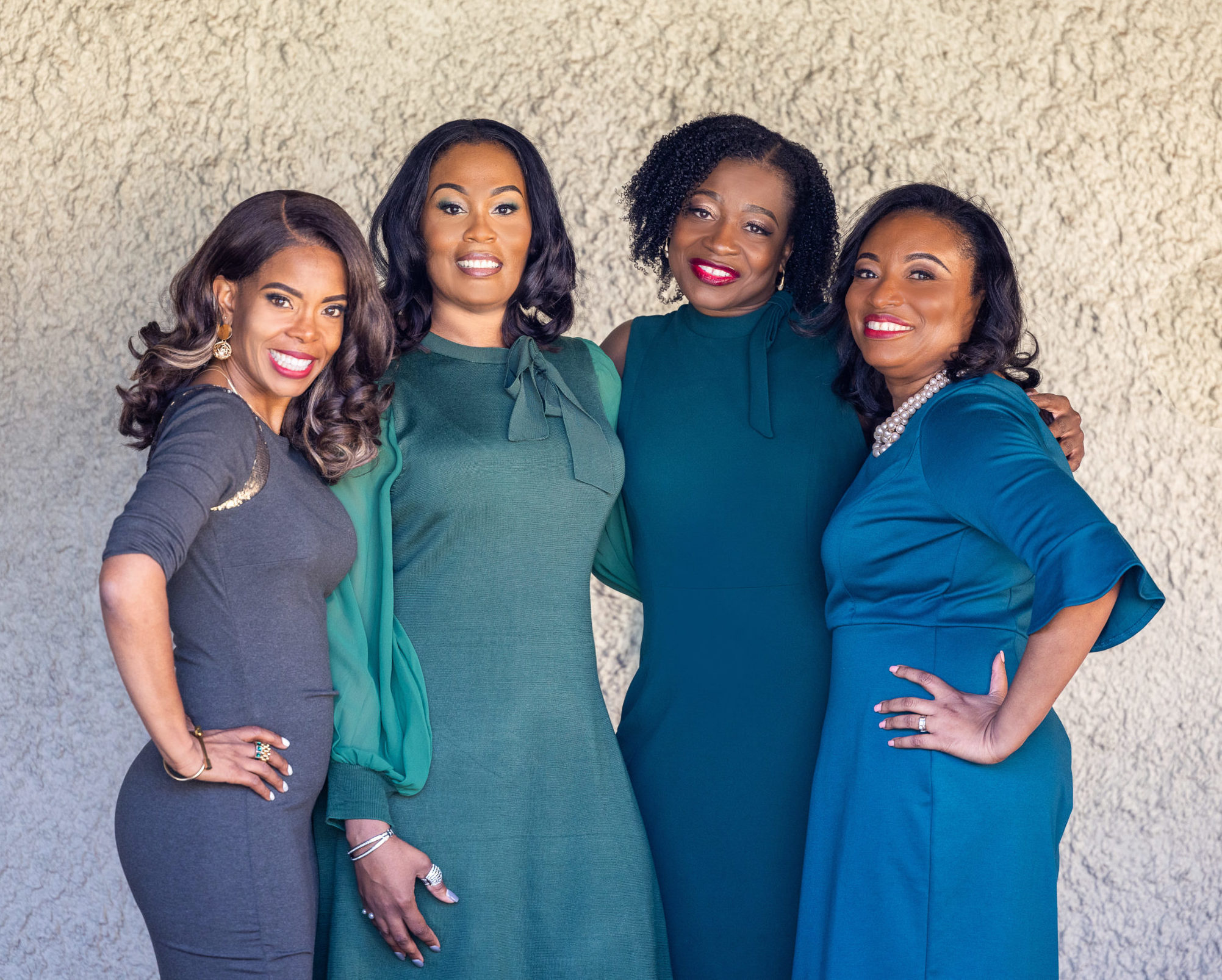
Only 1.2 percent of the U.S. population has a Doctor of Philosophy degree (Ph.D.) — throughout the rest of the world, less than 2 percent. Empirical data indicates that approximately 100,000 students in the U.S. pursue a doctorate degree each year. Nearly 40,000 drop out annually, however, many within the first year of their programs.
When I spoke with Drs. Yvonna Baker, Anna Streater-McAllister, Anna Dewese and Keyana Lyde, affectionally known together as “The Docs,” a title bestowed on them by Streater-McAllister’s husband, George McAllister, I hoped to learn not only about their bond and journey together, but the rationale behind pursuing such a degree.
Notwithstanding the strenuous curriculum of satisfactory completion of 60 semester credits beyond the master’s degree, the comp exams (a pass/fail comprehensive examination taken to measure acquired knowledge) and defense of dissertations, there are many other challenges, such as finances, time management and travel. Perhaps more important are two hidden issues linked to the high attrition rate—stress and the feeling of social isolation.
What helped “The Docs” face impending challenges was a formula for success built on a strong resolve that they were better together.
The Journey
“Mommy! You’re home!” Those words, full of longing and urgency, spoken by Yvonna Baker’s daughter, Tyler, sent chills through her. Baker had, in fact, been home for a week without being present. At the time, she was a doctoral student and the moment had arrived for her to take the comp exams. Failure meant a denied opportunity to defend her dissertation. A passing grade meant she would become a Ph.D. candidate and could continue “the work.”
That fateful week, her husband, Dallas, and her mother-in-law, Helen, took care of the household and family matters while she camped out on the formal living room floor with papers strewn all around. Perhaps she brushed her teeth over the course of the week, but she doesn’t truly remember. What she does recall is how dark and lonely the process had been before hearing the tender voice of her child for the first time in four days, only moments after Baker clicked “send.” It was as if Tyler could sense the change in the atmosphere, affirming her desire for her mom.
“The process was grueling,” says Baker. “The work”—as she defines the doctoral journey—included not only exams, but an eight-hour workday as a middle school guidance counselor in Ocala, driving to Tampa after work to attend Argosy University and arriving back home at 11pm each night. She would rest for a few hours and then get up and repeat the process. For nearly four years she maneuvered between work and a hybrid of classes, rounded out by another three years of preparation for her dissertation.
Four In A Million
Famed philosopher Aristotle coined the phrase: The whole is greater than the sum of its parts. And Baker sublimely identified the parts for this pilgrimage. A deeply optimistic and confident military brat from a close-knit family of five siblings, Baker became the bridging force that brought “The Docs” together.
“Unity and togetherness are deeply ingrained in me,” offers Baker. “My upbringing instilled a team mentality and construct that people are better together.”
This belief proved beneficial when she graduated high school in Germany and traveled for the first time to Tallahassee, Florida, to attend college. With her family still in Europe and no nearby relatives, Baker was quick to form familial relationships at work, school and church. At age 18, she began working at the Department of Education. She kept that job and three others as she matriculated at three state colleges. After receiving three degrees she relocated to Ocala to be near her fiancé.
Baker accepted a position at Howard Middle School in counseling, working with then-principal Scott Hackmyer. Under his leadership, she immersed herself into the community and learned “how to do the right things for children,” she recalls. One community event—a scholarship fashion show— introduced her to Anna Streater-McAllister, the selfpossessed, supportive, storyteller and “historian of the group.” The two later bonded through their sorority’s graduate membership intake process. Streater-McAllister recalls discussions about attaining their doctorates.
“If I go back to school, when I come out someone will be calling me doctor,” Streater-McAllister says she declared and Baker agreed.
Streater-McAllister did not always want to be an educator. At South Carolina State University she worked as the editor of the college’s newspaper and interviewed people like “mad cool” Doug E. Fresh. Streater-McAllister envisioned a career in journalism with Entertainment Tonight. She giggles as she reminisces, “That was the dream, but education is my calling.”
A job fair led her to a position at Fort King Middle School as a seventh grade English Language Arts teacher in January 1998. Streater-McAllister remembers meeting the other Anna, briefly, while working as a reading coach, but it was Baker who would cement the connection.
Baker met Anna Dewese in 2004 when she became the assistant principal at Howard Middle School. This was Dewese’s first job as an administrator but it would be far from her last. Before meeting Baker, Dewese was already a professional success story, having broken considerable barriers as a 15-year-old mother (a fact she willingly shares to encourage other young women in a similar situation). Dewese says her family moved around early in life and she did not want that for her son. So, once she graduated from Forest High School (FHS) in ’94, she committed to obtaining all of her advanced education while still “rooted and grounded in Ocala.” She wanted to provide stability for her child, which was possible through satellite programs at Central Florida Community College, now the College of Central Florida or CF.
Dewese started teaching at Madison Street Elementary School in 1998. But, she recalls, she knew she would become a teacher while she was in the second grade because, “I had the best second grade teacher ever.”
Ultimately, her first boss, Mrs. Bjork, saw something loftier for Dewese. During her first year of teaching, Bjork told her to go back to school, “Because you are going to be a principal”, Bjork urged.
“She encouraged me to get a masters’,” Dewese says. Bjork also placed her into increasingly advanced positions while Dewese was still a struggling single parent.
Her son was in the fifth grade when she wed her husband, Brian, after years of courting, and they began raising their blended family together. He also supported her dream of becoming a principal. But the objective of obtaining a doctorate was largely because of her dad urging her to reach higher. Each time she earned a new degree, “He always asked, ‘What’s next?’ and ‘What can you do with that?’” she shares.
Right before he had a stroke and was diagnosed with dementia, Dewese received her master’s degree. She told her dad, “I can get a doctorate,” and, as was his custom, he asked her, ‘What can you do with a doctorate?’”
She says she answered, “You can still be a principal but you can also work at the district office and you can become a superintendent,” And he said, ‘That’s what you need to do.’”
As a heavenly gift to her father, she defended her dissertation on the first Father’s Day after his death. She tells everyone that if it weren’t for him, she would not have those three letters, Ph.D., after her name.
The final connection in this inspiring group surfaced during a 2004 conference for guidance counselors where Baker reached out to the conscientious, self-described “momma bear” and the youngest of the four—Keyana Lyde.
Even before moving to Ocala from Long Beach, California, Lyde knew she wanted to earn her doctorate. She confesses to praying for everything to align with God’s will and, sure enough, a job offer came her way “without setting foot on Florida soil.” Lyde accepted a guidance counselor position at West Port High School while her husband, Bertram, also received a job offer in Ocala.
Her next prayer was to meet other young Black couples who were like-minded, driven and solid in their marital union. That happened too. “Miss Bubbly, Yvonna, came up to me like a breath of fresh air,” Lyde recalls. “She told me she was looking for young couples to do things with and invited us to go bowling.”
Through Baker’s individual get-togethers with each woman, she recognized their commonalities. The women had the same goals for themselves, the community and their families. Furthermore, they all held master’s in education, worked for the Marion County School Board and had a similar outlook for educating children. She had an epiphany which led her to unite them. She believed their connection would “set them on a path to great things together.”
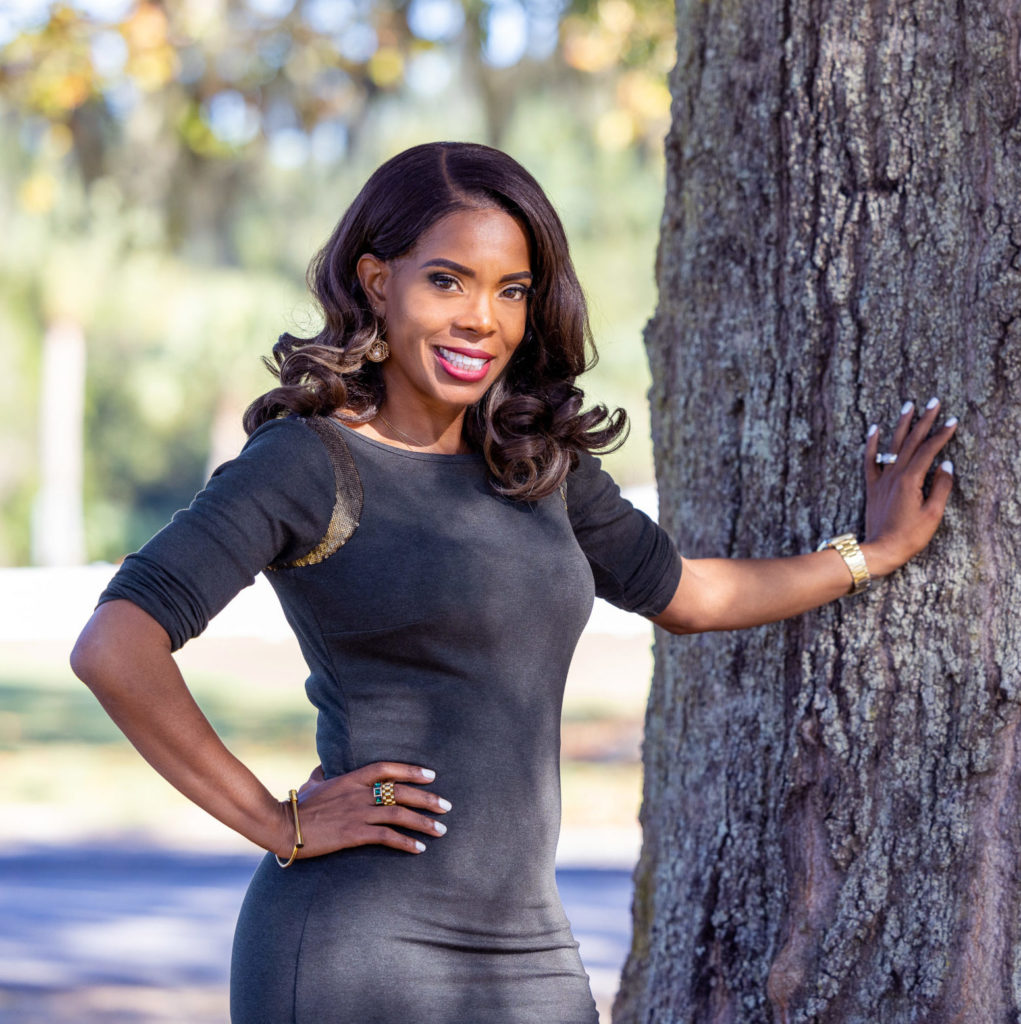
The Commitment
It was December 2005 when Baker set up a meeting with an advisor from Argosy University. They met at a local restaurant and she explains that is when the “unity and togetherness kicked in.”
After learning about the program’s benefits, Baker says, “You would have thought we were the Lakers going to the national championship. The excitement started to swell up in each one of our bellies that this was bigger than us.”
Although they had families and careers to manage, they collectively decided, ‘We can do this.’ They mapped out a plan for well over an hour and set a deadline to graduate and walk across the stage together.
“It was so fast,” Dewese recalls. “We agreed. ‘We are going to do it. Everybody has to be on board. We are going to start together. We are going to finish together.’”
She says it was “like a gentleman’s agreement.” Despite having no allegiances to each other, besides each of them knowing Baker, they verbally committed to stay together until the end.
“We pledged to be each other’s support system,” recalls Lyde. “By any means necessary,” adds Streater- McAllister.
In January 2006, the work began. They met at the same local restaurant again. This time they brought along their husbands, who would watch them leave for Tampa for their first day of classes.
In the beginning the foursome had a lot of face-to-face time, along with collective and individual calls every week. They could always vent to one another and when one was struggling the others would rally around her. Baker says they became “truth and accountability partners.”
Shortly into the program, Dewese’s career started to skyrocket. Her son was in the eighth grade by now and if anyone knew how to excel professionally during the day and take classes in the evenings while raising a family, Dewese did. In 2008, she became the principal of Fessenden Elementary School. She was 33-years old and had helped turn the school from a “D” grade to an “A.” Four years later, she was promoted to the district office.
Foundations In Faith
According to “The Docs,” God opened the door for them to journey together but did not keep them from experiencing trials. Life did not stop for them, especially not for a mother with two tiny babies under age 3. Lyde recalls staying up at night, doing papers until 1 and 2 in the mornings, while nursing a baby on her chest. Then she’d get up at 7am to be at work by 8am. Much like Baker, Lyde locked herself away with every single book from every class during comp time. She says playfully, “It was me, God and them books.” For a week, she says she was talking to God, bouncing her ideas off Him, and listening to whatever He was telling her.
Lyde was also an adjunct at CF. At times, she shares, she thought she was crazy. She never questioned the journey though.
“The thing that popped up was, Can I pull this off?” she reveals. She admits she had to learn to get out of her own way and trust God. Baker agrees. “Nothing stops,” she says. Although she never wanted to quit, she questioned, “Am I present enough?”
She admits her strong faith may sound corny to some, but a quiet voice verified she was where she needed to be “despite the packaged foods, drive-thru dinners, messy house days and outside help.”
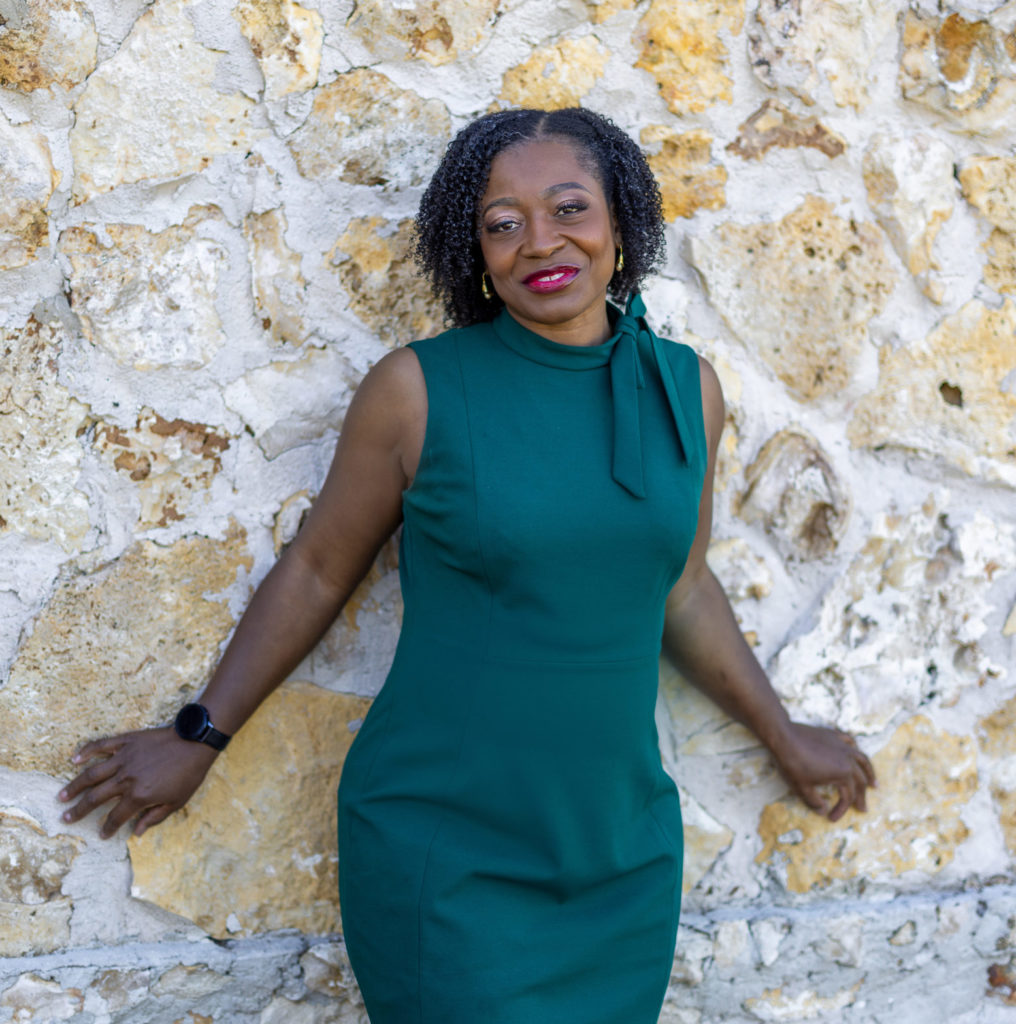
Family Ties
Streater-McAllister has her own set of memories. For her, the Tampa trips on Thursday nights to get to class by 5:30pm and returning home late in the evening resonate with her.
“George, bless his heart, would have the kids in bed,” she says. “He would wake up when I got home.” Then her husband would stay up with her as she ironed the kid’s clothes and then they would both go to sleep.
“You have to have support systems,” Baker asserts. She and Lyde welcomed baby girls during the journey and needed additional family support.
Baker praises her husband for being the “it factor” who made it all come together and says she cannot forget the countless times his mother was there for them. Baker’s mom, Debra, was in Tallahassee by then and also would make regular trips to help them out.
Lyde credits her husband, Betram, as well. “Without him, I would not have been able to do this,” she says. And when he was away for work, Lyde’s mother would fly in from California. Lyde recalls her mother preparing food and leaving it outside her door during her comps.
All the ladies commend their mothers, the shoulders of whom they stand upon. Lyde says her mother never let circumstances or excuses stop her from achieving, so she could not either.
Dewese says her mother was a spiritual and physical help even before the doctoral journey. As a single mom, she relied on her mom’s promise to “take care of the kid” while she went to school and worked.
And like Dewese’s father, Streater-McAllister’s maternal grandfather was her driving force. She describes him as an accomplished man, “a Black man with a master’s degree in the ‘50s.” He frequently shared his experiences and challenged her to exceed his accomplishments. He told her, “The first degree [bachelor’s], that’s your momma’s. Give it to her. The next one is yours.”
But once she got her master’s, he challenged her to go further than he had gone. When Streater-McAllister began “the work” at Argosy, she says her grandfather said, “Good, that’s what you need to do. You have to be better than me.” Her grandfather passed away in 2011, the same year she defended her dissertation.
Along the way, the ladies experienced the joys of births and suffered significant losses together. Streater-McAllister says, “Those were the times when the bond in the cohort was most impactful.”
She remembers calling her mom, Peg, who had been diagnosed with Non-Hodgkin’s Lymphoma the year prior, when she started the doctoral program. “She listened to me tell her how hard it [school] was and said that she’d come down to help,” she recalls.
By November of 2006, Streater-McAllister’s mother earned her wings and she says these women who she counts as sisters “were right there praying.” When “the fuzz and grief” set in, the dean told her to take some time off and encouraged her to continue when the time was right. “That was the roughest point” in the journey, she says, but, by mid-January, Streater-McAllister was back. She knew her mom would not have been okay with her quitting. She says she could hear “Peg saying, ‘Okay, Bird. I know you’re hurt, but you’ve got to finish. You don’t start anything you don’t finish.’”
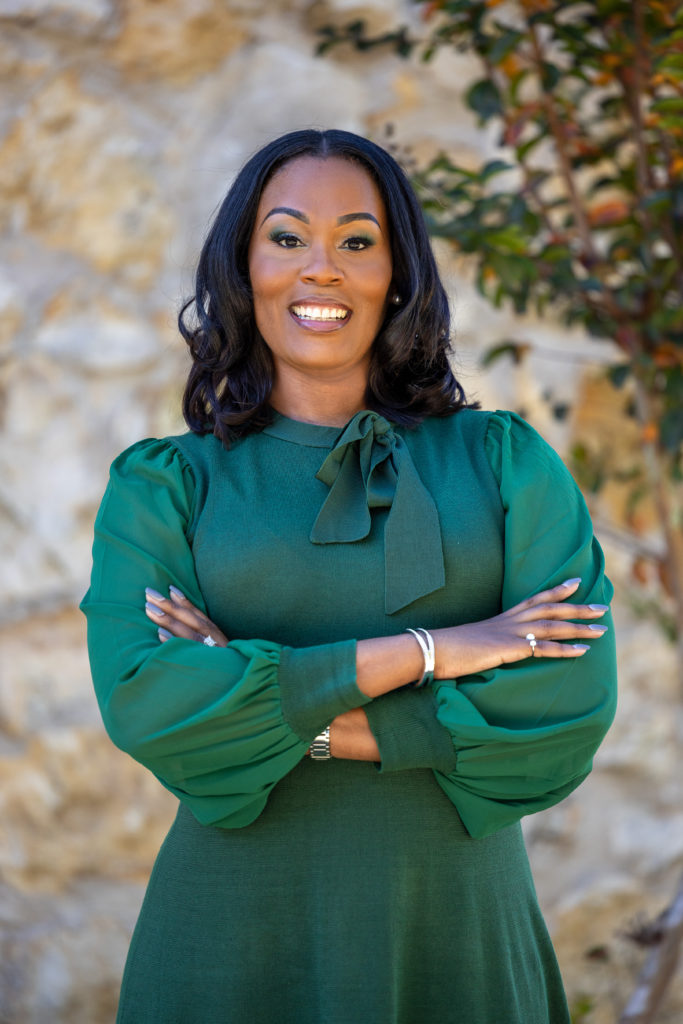
Stronger Together
Each Doc speaks fondly of Argosy administrator Dr. William Corbett, their prestigious committee chair and currently the Deputy Superintendent of Pinellas County Schools. They agree he was a principal motivator for the women he called “The Ocala Girls,” often inviting them to his home. Baker recalls him saying, “We are going to put feet on each one of your dissertations and make it walk.”
By 2012, they had successfully defended their dissertations only months apart. For each defense, the others showed up with their families in tow. Dewese jokes that the husbands, who formed a brotherhood of their own, basically earned honorary degrees. And although the women defended their dissertations at different times, they all graduated the summer of 2012, purposely waiting until they could do so as a group.
“It didn’t matter how long it took. I was going to walk whenever it happened,” Dewese explains. And that’s what they did. Ultimately, Corbett’s “Ocala Girls” stuck to their original decision to start together and end together.
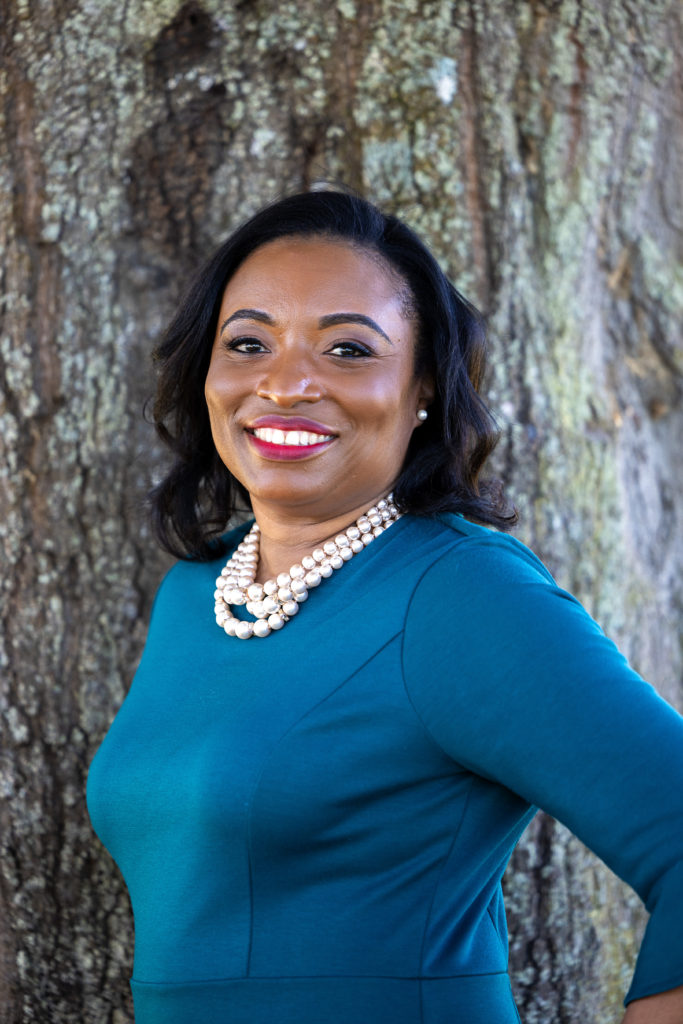
The Bigger Picture
After graduation, the women took a “glorious trip” to Puerto Rico and have been “girl tripping” annually ever since. They have traveled to St. Simons/Jekyll Island and Cocoa Beach, and they gather for a Christmas “Hotel Slumber Party” each year. They are currently working on their 10th-anniversary trip. They have become family. Their children have grown up together. They are the “aunties” and their husbands the “uncles.” And when Dewese’s husband suddenly passed away in 2019, the other husbands served as pallbearers.
According to Baker, the journey was the birthing of many unknown things inside of them. Through the obstacles, deaths and children, they birthed a camaraderie and doctoral degrees that they will use for greater influence.
That’s why Baker would do it again. Not for the accolades or external gains, but for the daughter who woke her out of that trance and for the young girls who ask about the degrees that hang on her wall. Her Ph.D. has been a “crack in the door to push girls toward college” and to show her daughter the work ethic required to birth a dream.
As for Dewese, who lives her passion daily, the work is about grooming educators to lead schools with positivity for the profession. She also encourages young girls to dream big, find their passion and not feel limited by their circumstances. Streater-McAllister extends the same knowledge she imparts to her own children, “You have to do something worthy of someone following.”
She tells other young women who want to follow in her footsteps that, “excellence is about continuing the excellence.”
Lyde still uses her motherly instincts to foster a legacy of successful students who were previously counted out. She tells them, “Is it going to take some work? Yes. But we are going to take it one step at a time. We are not going to look at the big picture. We are going to make a list and go through one item on the list and check it off.”
Lyde promises that if they follow her regimen, they will look back one day and everything will be checked off. She knows from experience. After all, “The Docs” found a formula for slaying the Ph.D. journey: combine commitment; faith; supportive families; transformative teachers, mentors and colleagues; and a group of likeminded and high-achieving individuals to share the journey.
Together, their fellowship and resiliency pushed them further and they accomplished more than they could as individuals. In the end, they are bound by friendship and love. Dewese says it best, “The prestige is nice, but the biggest takeaway is the friendship and the sisterhood,” she shares. “I love those girls with my whole heart.”






